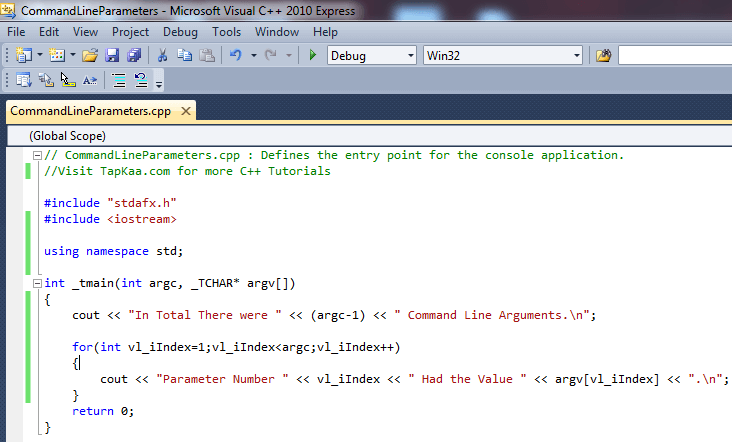We can also give command-line arguments in C and C. Command-line arguments are given after the name of the program in command-line shell of Operating Systems. To pass command line arguments, we typically define main with two arguments: first argument is the number of command line arguments and second is list of command-line arguments. Aug 07, 2009 argc tells you how many command-line arguments there were. It is always at least 1, because the first string in argv (argv0) is the command used to invoke the program.argv contains the actual command-line arguments as an array of strings, the first of which (as we have already discovered) is the program's name.
ENGINE DYNOJBA’s full service engine shop features a state-of-the-art DTS Powermark engine dyno. Vehicle inspections road testing, leak checks, sensor adjustments, and verifying proper installation of mechanical components are key to ensuring accurate results and safe operation during tuning. For every power verification, you receive a color graph that charts your hp and torque curves, along with a printout that includes mph, rpm, hp, torque, ambient temp, air/fuel ratio and vacuum/boost readings throughout the rpm band.With years of experience in achieving optimum results with both carbureted and fuel injected vehicles, our technicians have developed intensive procedures for preparing a car for dyno tuning. Designed to handle up to 2,500-hp and 1,800-ft/lbs of torque, our dyno facility provides advanced high performance engine dyno testing and tuning for street performance, drag, circle track, road racing, off-road and marine race engines. Auto tuning near me. JBA’s dyno cell is designed and manufactured for maximum performance and durability, as well as unequalled data acquisition capabilities.
C makes it possible to pass values from the command line at execution time in your program. In this chapter, you will learn about the use of command-line argument in C.
The main() function is the most significant function of C and C++ languages. This main() is typically defined having a return type of integer and having no parameters; something like this:
Example:
C provides programmers to put command-line arguments within the program, which will allow users to add values at the very start of program execution.
What are Command line arguments?
Command line arguments are the arguments specified after the program name in the operating system's command line, and these arguments values are passed to your program at the time of execution from your operating system. For using this concept in your program, you have to understand the complete declaration of how the main function works with this command-line argument to fetch values that earlier took no arguments with it (main() without any argument).
So you can program the main() is such a way that it can essentially accept two arguments where the first argument denotes the number of command line arguments whereas the second argument denotes the full list of every command line arguments. This is how you can code your command line argument within the parenthesis of main():
In the above statement, the command line arguments have been handled via main() function, and you have set the arguments where
- argc (ARGument Count) denotes the number of arguments to be passed and
- argv [ ] (ARGument Vector) denotes to a pointer array that is pointing to every argument that has been passed to your program.
You must make sure that in your command line argument, argv[0] stores the name of your program, similarly argv[1] gets the pointer to the 1st command line argument that has been supplied by the user, and *argv[n] denotes the last argument of the list.
Program for Command Line Argument

Example:
- C Programming Tutorial
- C Programming useful Resources
- Selected Reading
It is possible to pass some values from the command line to your C programs when they are executed. These values are called command line arguments and many times they are important for your program especially when you want to control your program from outside instead of hard coding those values inside the code.
The command line arguments are handled using main() function arguments where argc refers to the number of arguments passed, and argv[] is a pointer array which points to each argument passed to the program. Following is a simple example which checks if there is any argument supplied from the command line and take action accordingly −
When the above code is compiled and executed with single argument, it produces the following result.
When the above code is compiled and executed with a two arguments, it produces the following result.
When the above code is compiled and executed without passing any argument, it produces the following result.
It should be noted that argv[0] holds the name of the program itself and argv[1] is a pointer to the first command line argument supplied, and *argv[n] is the last argument. If no arguments are supplied, argc will be one, and if you pass one argument then argc is set at 2.
You pass all the command line arguments separated by a space, but if argument itself has a space then you can pass such arguments by putting them inside double quotes ' or single quotes '. Let us re-write above example once again where we will print program name and we also pass a command line argument by putting inside double quotes −
Command Line Arguments In Dev C++
When the above code is compiled and executed with a single argument separated by space but inside double quotes, it produces the following result.